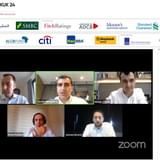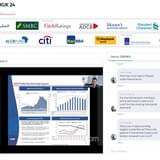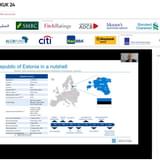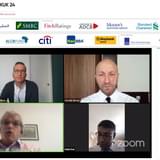Q. Turkish lawmakers are aiming for annual economic growth of 5.5% until 2020, Prime Minister Binali Yıldırım recently announced. To what extent is this target achievable? What do you see as the major growth drivers during that period?
A. This year’s growth performance becomes more striking when taking into account the dismal impact of an unsuccessful coup attempt in July 2016, as well as the weak global growth environment. The government’s supportive measures, implemented proactively, have been critical for this year’s robust growth environment. It has been admirable that the Turkish economy grew by 5.1% year on year in the first half of this year, signalling a similar figure for full-year growth, and well above this year’s initial projection of 4.4%. The outcome is largely driven by private consumption, construction investments and strong external demand. It is estimated this growth performance will extend into Q3 in line with strong leading indicators and the base effect, which have led to estimates of 5.5% year on year growth for 2017.
The newly announced Medium-Term Programme foresees the maintenance of growth-supporting fiscal policy in 2018, one of the main drivers for next year’s performance. We believe that this target is quite achievable. In terms of composition of growth, we expect a similar pattern, which is shaped primarily by private consumption and public expenditures, as has been the case this year. The strong budget dynamics will create room to implement fiscal policy that is supportive of further growth.
Indeed, despite significant demand-side growth through new public expenditure, the budget deficit seems to stay modest, at around 2% of GDP this year. This is fairly impressive when compared to some of Turkey’s peers globally. On the other hand, private investments – which have stayed weaker than the consumption side this year – may turn into a more significant supportive component next year, which may make 2018’s growth target more achievable. At that point, the interest rate environment will be a key factor to watch. If inflation pursues a downtrend, interest rates may help produce a more comfortable outlook.
Q. Inflation in Turkey recently reversed declines, most recently climbing above 10%. Coupled with that, we are seeing continued pressure on the Central Bank to keep interest rates low. Broadly speaking, how have these trends influenced Halkbank’s view on lending to strategic sectors? Has this influenced the bank’s ability to adequately price risk?
A. The annual inflation rate is hovering above 10% and is likely to stay at that level until the end of this year. However, with the help of a set of supportive factors, primarily strong base effect, government measures to control food prices, and the lira’s stabilisation, we expect the annual figure to drop sharply to high single digit levels at the end of the year.
Moreover, we expect the disinflation trend to become more perceptible in the first half of next year, which may result in a lower annual inflation figure of around 7%, thanks in part
to the base effect. The Central Bank of Turkey (CBT) would likely not maintain tight monetary policy stance further from that point. Significant improvement in the inflation outlook will enable the CBT to ease interest rates very gradually. In addition, we feel that CBT has been communicating with the market very well, so we believe the CBT will ease its very tight monetary policy gradually without depressing the market, and give adequate forward guidance to the market. In that environment, the banking system may alleviate possible obstacles with regard to lending strategies and assert tighter control of the risk-pricing dynamic. Taking these assumptions into consideration, we think that Halkbank will able to lend to strategic sectors through the help of relatively favourable liquidity conditions next year when compared to 2017.
Q. Turkey’s local and hard currency capital markets continue to be dominated by the state, state-owned entities, and financial institutions. Why is that? Do you see any impediments to the development of a vibrant corporate bond market in Turkey? If so, what needs to happen?
A. Confidence in financial instruments is so vital for investors, and our state-owned entities and financial institutions are more than capable of acquiring this level of trust from the markets while fulfilling all obligations imposed domestically by the Turkish Capital Market Board. Naturally, investor demand for these institutions is robust. However, many corporates do not necessarily have the internal infrastructure in place to enter the bonds markets, which is why many of them have difficulty issuing credit notes or securing adequate demand from the bond markets. On the other hand, sometimes it is easier and cheaper to get a bank loan than to hit the bond market. That said, the bond market’s domination by state-owned or state-linked entities and financial institutions isn’t because other corporates are being crowded out.
However, it does seem as though market will be dominated in equal measure by financial institutions and corporates in the near future, largely due to demand growth. Recently, some measures have been implemented by the government to increase saving levels in Turkey, particularly the Individual Pension System and Automatic Participation System, stimulating the growth of Turkey’s institutional investor base and domestic asset management sector. This will create stronger domestic demand for asset diversification, which will help stimulate the corporate bond market – and why we believe the participation of corporates in the bond markets will rise. The Istanbul Finance Centre project will have a positive impact on the growth of the country’s capital markets in coming years. Additionally, setting banking and insurance transaction tax to zero in last Medium-Term Programme is one of the key steps recently taken to attract foreign derivative transaction clients to the Turkish capital markets.
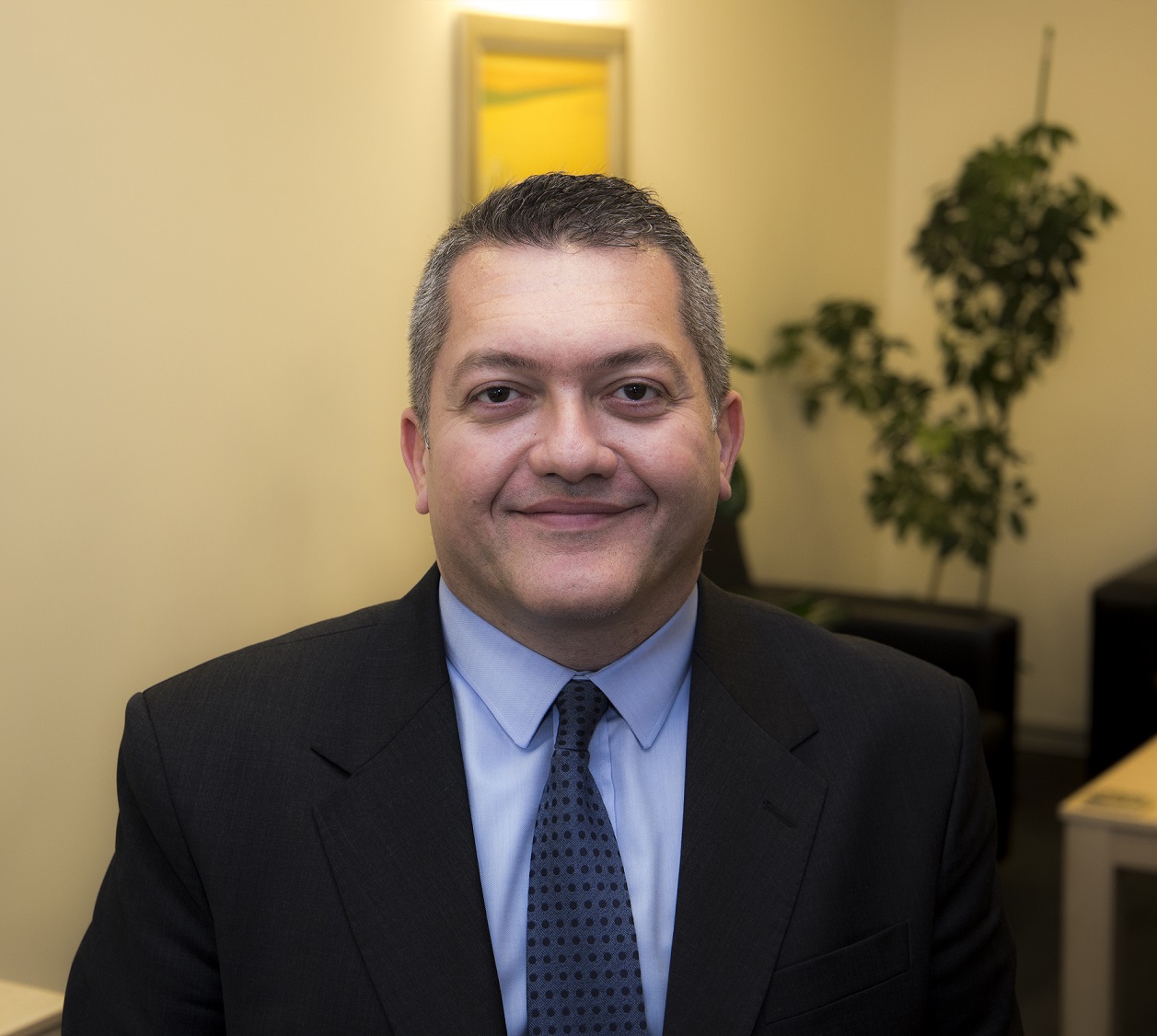 We will continue to see further steps and measures in the forthcoming years; these kinds of potential reforms and trends will pave the way for a vibrant capital market in Turkey, something that is attractive for both local and foreign investors.
We will continue to see further steps and measures in the forthcoming years; these kinds of potential reforms and trends will pave the way for a vibrant capital market in Turkey, something that is attractive for both local and foreign investors.
Q. Can you give us a sense of Halkbank’s strategy for the next 6-12 months? Where is the bank looking to focus its resources, and are there plans to boost capital markets activity and lending?
A. Despite the fact that there are larger banks in terms of assets, we rank number one in terms of market share in SME loans. However, we are very active in the commercial and especially in the corporate customer segments, which is completely in line with our long-term strategy to support the real sector and households, which play an important role in the economy. In the corporate segment, we have strengthened our engagement and became very active in funding big infrastructure projects in our country; we took part in almost all of the largest projects including bridges, airports and highways.
Halkbank’s primary goals are to grow faster than the industry average in receiving deposits and to achieve loan growth in a highly competitive market. Halkbank sustained its strong and widespread deposit volume as well as the maturity composition of its deposits. Our strong activities are also clearly noticeable when you look at loan growth. As of June, we reached our yearly target of around 15% loan growth. Halkbank aims to raise alternative funding and extend the maturity of its outstanding funds given the current market and competitive rate environment. On the domestic front, in addition to the public offering-type issuances, Halkbank continued to issue securities targeting qualified investors on a private placement basis. The Bank plans to secure subordinated loans and issue senior unsecured Eurobonds in order to diversify its issuance profile, in response to its balance sheet needs. Halkbank will also continue to secure long-term funding facilities under bilateral agreements with numerous international investment and development banks – the European Investment Bank, World Bank, French Development Agency, Council of Europe Development Bank, among others – to finance the investment and working capital needs of SMEs.
Halkbank offers both fixed income and hedging products in the rapidly developing derivatives markets in Turkey. Expanding its offering of products that will meet the needs of import/export companies to protect against FX and interest rate risk in this period, Halkbank will continue to provide support to clients, especially in hedging transactions related to project.


